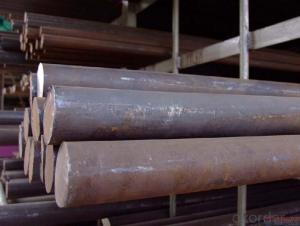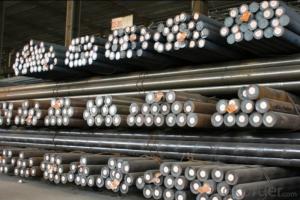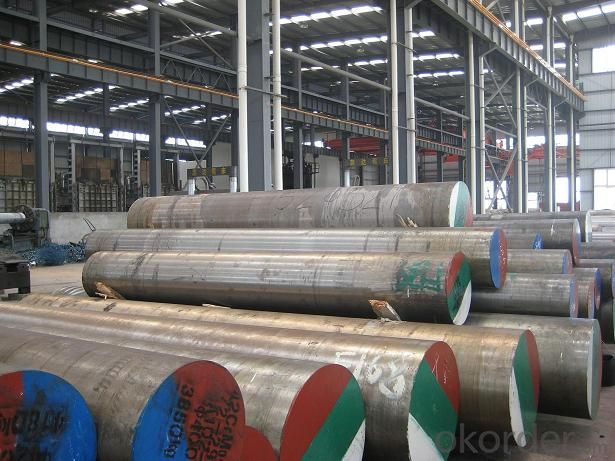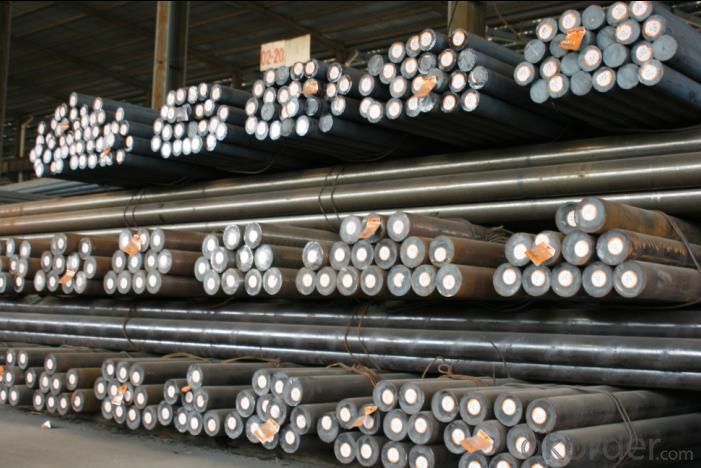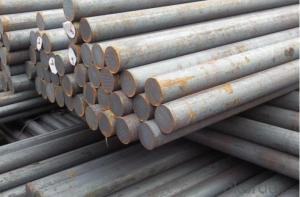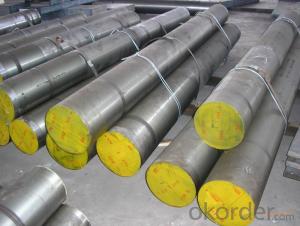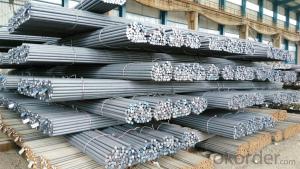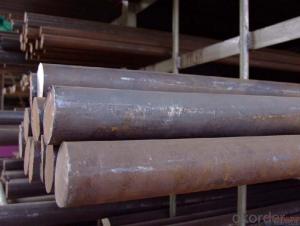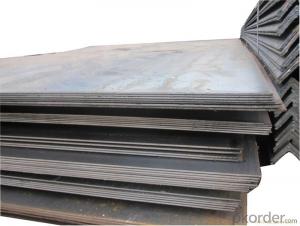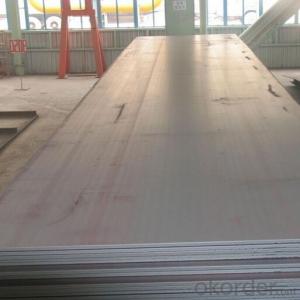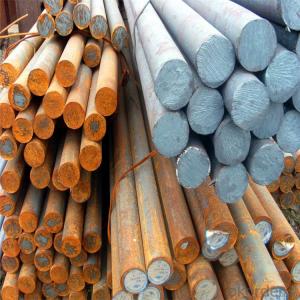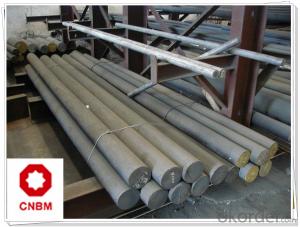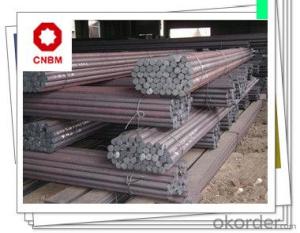Hot Rolled Carbon 25mm Thick Mild Steel Plate S45c
- Loading Port:
- China main port
- Payment Terms:
- TT OR LC
- Min Order Qty:
- 30 m.t.
- Supply Capability:
- 10000 m.t./month
OKorder Service Pledge
OKorder Financial Service
You Might Also Like
Specification
Hot Rolled Carbon 25mm Thick Mild Steel Plate S45c
Product information:
1,Grade: 50#(SAE1050,)
45#(SAE1045,1.1191,S45C)
2,Specification:25/30/35/40/45/50/55/60/65/70/75/80/90/105/115/125MM.cutted any size by customer request
Chemical composition: C=0.42-0.5,Si=0.17-0.37,Mn=0.5-0.8,P≤0.035,S≤0.035,Cr≤0.025,Ni≤0.025
3,Hardness:HBS=140-210
4,Application:Used for making the mould bottom, plastic mould and normal mechinery parts.
5,Payment terms:30%deposit,and balance against T/T or L/C at sight.
| 1.Specifications of ASTM Steel Plate | |||||||||
| Round bar | Diameter(mm) | Length (mm) | |||||||
| 20~800 | 3000~5800 | ||||||||
| Plate | Thickness(mm) | Width (mm) | Length (mm) | ||||||
| Max:800 | 1600~2300 | 3000~5800 | |||||||
| 2.Chemical compositon(%) | |||||||||
| Standard Number | C | Si | Mn | Cr | Ni | Cu | S | P | |
| GB | 45# | 0.42~0.50 | 0.17~0.37 | 0.5~0.8 | ≤0.25 | ≤0.3 | ≤0.25 | ≤0.035 | ≤0.035 |
| AISI | 1045 | 0.43~0.50 | 0.10~0.60 | 0.6~0.9 | ≤ 0.50 | ≤0.40 | |||
| DIN | 1.1191 | 0.42~0.48 | 0.15~0.35 | 0.6~0.9 | ≤0.15 | ≤0.2 | ≤0.3 | ||
| JIS | S45C | 0.42~0.50 | ≤0.40 | 0.5~0.8 | ≤0.40 | ≤ 0.4 | |||
| 3.Delivery condition and Heat treatment | |||||||||
| Forging | Normalization | Hardening | Subcritical annealing | Isothermal annealing | Tempering | ||||
| 1100~850* | 840~880 | 820~860 water | 650~700* | 820~860 600x1h* | 550~660 | ||||
| 4.Characteristic | |||||||||
| Nice machanical porpertys and worse hardenability,so, it is used for machine parts | |||||||||
| 5.Application of ASTM Steel Plate | |||||||||
| 1): Can be used in many fields such as building, automobile, shipbuilding, | |||||||||
| petrochemical, machinery, medicine, food, electric power, energy, space, building | |||||||||
| and decoration, etc. | |||||||||
| 2): Can be made into mould template, mortise pin, column. | |||||||||
| 3): This kind of steel have good mechanical property, is widely used in structural parts | |||||||||
| which may support stress alternation, especially made into some connecting | |||||||||
| rods, bolts, wheel gear... | |||||||||
| 4): This kind of steel is the most common blanks and materials of shaft part. | |||||||||
Product show
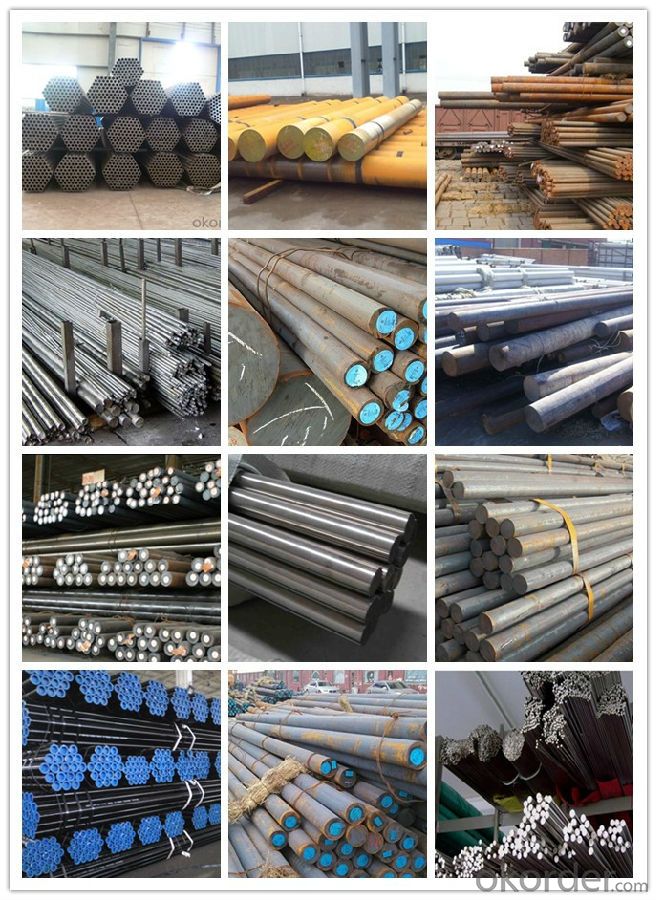
Workshop show
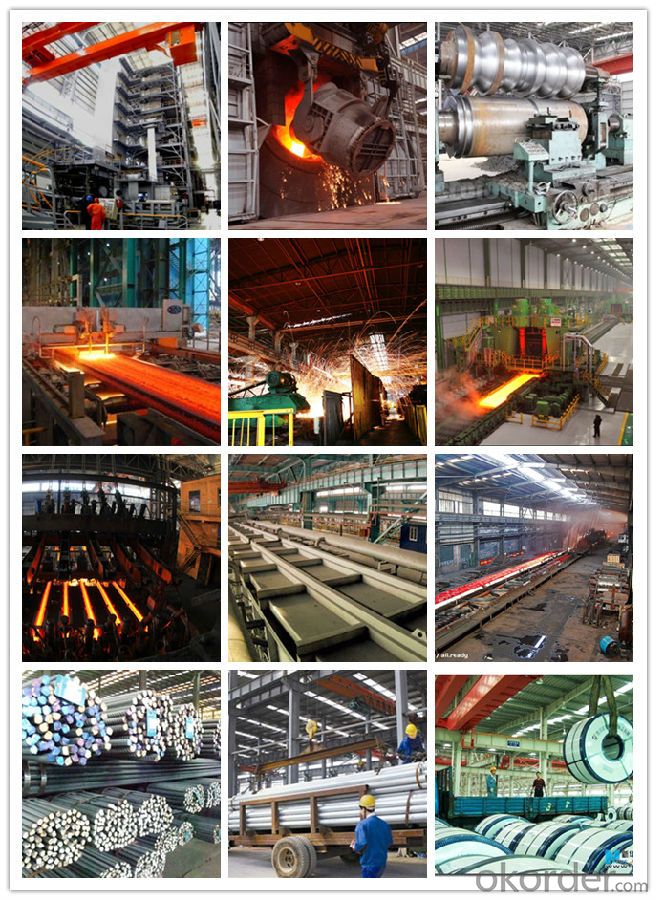
Our service:
-High manufacturing accuracy
-High strength
-Small inertia resistance
-Strong heat dissipation ability
-Good visual effect
-Reasonable price
Chose happens because of quality, then price, We can give you both.Additionally, we can also offer professional products inquiry, products knowledge train(for agents), smooth goods delivery, exellent customer solution proposals.Our service formula: good quality+good price+good service=customer's trust
SGS test is available, customer inspection before shipping is welcome, third party inspection is no problem.
If you need the sample, please feel free to let me know. Any question, we will contact you ASAP!
- Q: What are the different coating techniques for special steel parts?
- There are several different coating techniques that can be used for special steel parts. Some common ones include electroplating, powder coating, thermal spraying, and chemical vapor deposition. Each technique offers unique advantages and is chosen based on factors such as the desired coating properties, cost, and application requirements.
- Q: What are the common challenges in machining special steel?
- Machining special steel can present several common challenges that need to be effectively addressed in order to achieve desired results. One of the primary challenges in machining special steel is its high hardness and toughness. Special steels are often alloyed with various elements to enhance their properties, making them harder and more resistant to wear and corrosion. This hardness can cause increased tool wear and reduced tool life, requiring the use of specialized cutting tools and techniques. Another challenge in machining special steel is its low thermal conductivity. Special steels are known to have poor heat dissipation properties, leading to the accumulation of heat during the machining process. This heat buildup can cause thermal deformation, leading to dimensional inaccuracies and poor surface finish. Proper cooling and lubrication techniques, as well as appropriate cutting speeds and feeds, are crucial to overcome this challenge and prevent thermal damage. Additionally, special steels often have complex microstructures due to their alloying elements, which can result in uneven material removal and surface finish. These microstructural variations can make the machining process more unpredictable and challenging. Careful selection of cutting parameters, tooling, and machining strategies is necessary to ensure consistent and accurate results. Furthermore, some special steels may exhibit work hardening tendencies during machining. This means that as the material is being cut, it becomes harder and more resistant to further cutting. This work hardening can lead to increased cutting forces, tool wear, and poor surface finish. Utilizing appropriate cutting speeds, feeds, and tool geometries can help mitigate this challenge and prevent work hardening. Finally, special steels often come with higher manufacturing costs due to the complexity of their composition and the need for specialized tooling and equipment. The selection of suitable cutting tools, fixtures, and machining processes may require additional investment and expertise. Therefore, understanding the specific characteristics and challenges of machining special steel is crucial to ensure efficient and cost-effective production.
- Q: Can special steel be used in the medical device manufacturing industry?
- Yes, special steel can be used in the medical device manufacturing industry. Special steel alloys, such as stainless steel, are commonly used in the production of medical devices due to their excellent corrosion resistance, biocompatibility, and mechanical properties. These materials provide durability, sterilization compatibility, and are suitable for various medical applications, including implants, surgical instruments, and diagnostic equipment.
- Q: What are the properties of maraging steel?
- Maraging steel is a unique alloy known for its exceptional strength, toughness, and resistance to corrosion. It is characterized by its high yield strength, making it suitable for applications that require strong and durable materials. Maraging steel also exhibits excellent machinability and weldability, allowing for ease of fabrication and assembly. Additionally, it is known for its exceptional resistance to stress corrosion cracking, making it an ideal choice for critical components in aerospace, defense, and other high-performance industries.
- Q: What are the environmental impacts of special steel production?
- The environmental impacts of special steel production include emissions of greenhouse gases, such as carbon dioxide and methane, which contribute to climate change. The process also generates air pollutants, including particulate matter and sulfur dioxide, which can harm human health and contribute to air pollution. Additionally, the extraction of raw materials for special steel production can lead to habitat destruction and biodiversity loss. Proper management and adoption of more sustainable practices, such as energy efficiency and waste reduction, can help mitigate these impacts.
- Q: How does special steel perform in cryogenic applications?
- Special steel is renowned for its exceptional performance in cryogenic applications, characterized by extremely low temperatures that fall below -150 degrees Celsius (-238 degrees Fahrenheit). Unlike regular steel, which tends to become brittle and weaker in such conditions, special steel, also referred to as cryogenic steel or low-temperature steel, is specifically engineered to withstand these extreme cold temperatures. One of the key advantages of special steel lies in its ability to maintain its mechanical properties even at cryogenic temperatures. It retains its strength, toughness, and ductility, enabling it to endure the stresses and strains imposed on it in cryogenic environments. As a result, special steel finds application in various fields, including aerospace, energy, and healthcare, where it is used in cryogenic storage tanks, pipelines, and equipment. Another significant feature of special steel is its excellent resistance to brittle fracture at low temperatures. This is of utmost importance since brittle fractures occur when materials become excessively brittle and fail under stress. The distinct composition and processing methods employed in special steel help prevent such fractures, ensuring the integrity and safety of components within cryogenic systems. Furthermore, special steel possesses a low coefficient of thermal expansion, meaning it undergoes minimal dimensional changes when exposed to temperature fluctuations. This characteristic proves highly advantageous in cryogenic applications as it preserves the stability and reliability of equipment and structures. Additionally, special steel exhibits commendable corrosion resistance, which is vital in cryogenic environments where the presence of moisture and certain chemicals can accelerate corrosion processes. By resisting corrosion, special steel enhances the longevity and durability of components, thereby reducing maintenance and replacement costs. In conclusion, special steel is the preferred choice for cryogenic applications due to its ability to maintain mechanical properties, resist brittle fracture, display low thermal expansion, and exhibit corrosion resistance. These properties render it a dependable and efficient material for use in cryogenic systems, providing the necessary strength and durability even under extremely low-temperature conditions.
- Q: What are the different surface treatments applied to special steel?
- There are several different surface treatments that can be applied to special steel to enhance its properties and improve its performance. Some of the commonly used surface treatments include: 1. Heat treatment: This is a process that involves heating the steel to a specific temperature and then cooling it at a controlled rate. Heat treatment can be used to improve the hardness, strength, and toughness of the steel, as well as to enhance its resistance to wear and corrosion. 2. Coating: Coating the surface of special steel with a protective layer is another common surface treatment. This can be done using various methods such as electroplating, hot-dip galvanizing, or powder coating. Coatings can provide additional resistance to corrosion, improve the appearance of the steel, and increase its lifespan. 3. Nitriding: Nitriding is a process that involves diffusing nitrogen into the surface of the steel, typically at high temperatures. This forms a hard surface layer that improves the wear resistance and fatigue strength of the steel, while maintaining the core toughness. 4. Shot peening: Shot peening is a mechanical surface treatment that involves bombarding the steel surface with small spherical particles, typically made of steel or ceramic. This process induces compressive stresses in the surface layer, which improves the fatigue strength and resistance to stress corrosion cracking. 5. Passivation: Passivation is a chemical treatment that is used to remove impurities and contaminants from the surface of the steel, typically by immersing it in an acid solution. This process helps to restore the natural corrosion resistance of stainless steel by forming a protective oxide layer on the surface. 6. Electro-polishing: Electro-polishing is an electrochemical process that removes a thin layer of material from the surface of the steel. This treatment can improve the surface finish, remove micro-roughness, and enhance the corrosion resistance of the steel. These are just a few examples of the various surface treatments that can be applied to special steel. The choice of treatment depends on the specific requirements of the application and the desired properties of the steel.
- Q: How does special steel contribute to sustainability?
- Special steel contributes to sustainability in several ways. Firstly, it is highly durable and has a longer lifespan compared to traditional steel, reducing the need for frequent replacements and minimizing waste. Additionally, special steel can be recycled and reused multiple times without losing its properties, reducing the demand for new raw materials and energy consumption in the production process. Furthermore, special steel offers superior strength and lightweight characteristics, enabling the development of more fuel-efficient vehicles and structures, thus reducing carbon emissions. Overall, special steel's durability, recyclability, and energy efficiency make it a key material in promoting sustainable practices in various industries.
- Q: How is corrosion-resistant steel different from regular steel?
- Corrosion-resistant steel, also known as stainless steel, differs from regular steel primarily due to the presence of chromium. Regular steel is prone to rust and corrosion when exposed to moisture and oxygen, while corrosion-resistant steel contains a minimum of 10.5% chromium, which forms a protective layer on its surface, preventing rust and corrosion. This additional element makes corrosion-resistant steel highly durable, long-lasting, and suitable for various applications where exposure to moisture or corrosive environments is a concern.
- Q: What are the challenges in surface treating special steel?
- Some of the challenges in surface treating special steel include achieving uniform and consistent coatings, ensuring adhesion of the coating to the steel substrate, overcoming the high hardness of the steel, preventing distortion or warping during the treatment process, and managing the potential for thermal degradation or oxidation. Additionally, the presence of unique alloying elements in special steel may require specialized treatment techniques to achieve the desired surface properties.
Send your message to us
Hot Rolled Carbon 25mm Thick Mild Steel Plate S45c
- Loading Port:
- China main port
- Payment Terms:
- TT OR LC
- Min Order Qty:
- 30 m.t.
- Supply Capability:
- 10000 m.t./month
OKorder Service Pledge
OKorder Financial Service
Similar products
Hot products
Hot Searches
Related keywords

